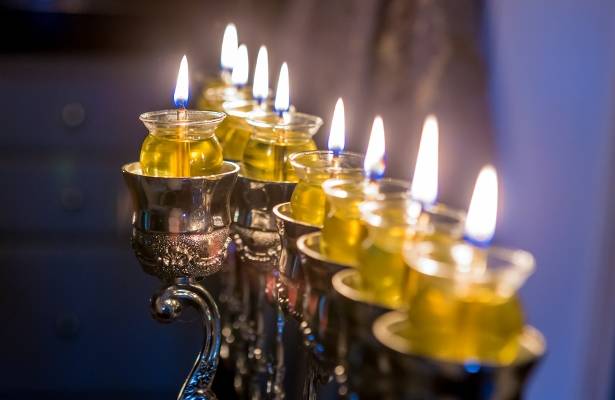Joseph and Antiochus. The hatred of Joseph’s brothers towards him and the hatred of the ancient Greeks towards the Jews. What is the Torah telling us?
By Rabbi Ari Enkin, Rabbinic Director, United with Israel
This week’s Torah portion, Vayeishev (Genesis 37:1–40:23), is very much associated with the upcoming holiday of Chanukah. Indeed, Vayeishev is always read immediately before, or even during, Chanukah.
Vayeishev contains the bulk of the story of Joseph and his life’s ‘adventures.’ Joseph’s brothers hated him, primarily because they were jealous of him, and as a result they almost killed him, threw him into a pit and sold him into slavery. He ended up in an Egyptian prison. Definitely not paradise. The story of Joseph is the first Biblical account of baseless hatred among the Jewish people.
So what’s the connection to Chanukah?
It is explained that the Gematria, the numerical value, of the name “Joseph” is the same as the name “Antiochus,” the villain of the Chanukah story. Antiochus was the Greek king who defiled the Holy Temple and banned Jewish observance. Furthermore, among his evil decrees was the requrement for Jews to write on the horns of their oxen (yes, on the horns of their oxen!) that they renounced their allegiance to God. The connection here? Joseph is compared to an ox both in the Torah and in later rabbinic literature! (See, for example, Deuteronomy 33:17)
Joseph and Antiochus. The hatred of Joseph’s brothers towards him and the hatred of the Greek towards the Jews. Connections and more connections. What is the Torah telling us?
It is explained that the Greeks were able to conquer the Jews and oppress them because the Jews of that era hated each other for no good reason – just like the relationship between Joseph and his brothers. In many ways, Chanukah is a story of Jews coming together in unity to achieve their goals. The leader of the Jewish revolt against Antiochus and the Greek army was led by the Hashmonaim family, who descended from Aaron the Priest. Aaron was the figure associated with harmony, and he would always pursue peace between quarrelling people. It was therefore a very appropriate ‘coincidence’ that it was the Hashmonaim who restored peace and sovereignty to Jerusalem and, more importantly, among Jews.
The connection between the numerical value of the word “Joseph” and the word “Antiochus,” therefore, is to remind us not to repeat the mistake the brothers made in their treatment of Joseph. If we do, we will end up having an “Antiochus” to deal with.
Chanukah is an opportunity to work on ourselves and our relationships with others, especially in terms of removing jealously and baseless hatred from our hearts. Perhaps offer a Chanukah gift this year to a person whom you would not ordinarily have considered. That’s a sure way to build unity, harmony and friendship among ourselves!
For more insights by Rabbi Enkin on this week’s Torah portion, click on the links below.
https://unitedwithisrael.org/living-torah-dont-bow-to-peer-pressure/
https://unitedwithisrael.org/living-torah-where-are-you-going/
https://unitedwithisrael.org/living-torah-the-spicy-joseph-attitude/
Bring Joy to Israeli Soldiers - Send Winter Care Packages!
We are honored to thank the young men and women of the IDF who risk their lives every day to defend the citizens of Israel.
Join us in sending winter care packages and personal notes of support to Israeli soldiers who are out in the cold all day.
Warm up a soldier's heart with essential winter wear including fleece jackets, hats, gloves and more. Keep an entire unit warm!
THE SOLDIERS REALLY APPRECIATE YOUR LOVE AND CONCERN!
Click Here to Send Your Gift and Personal Note to Israeli Soldiers

